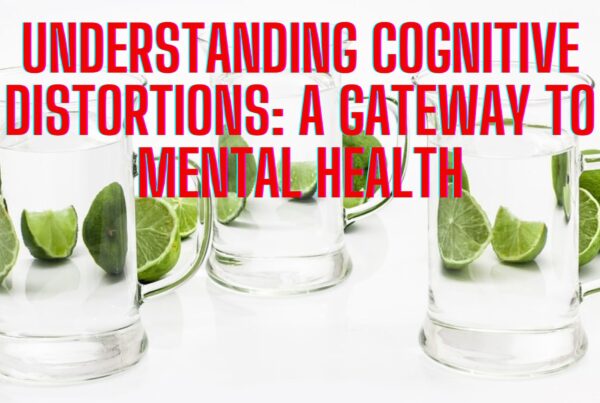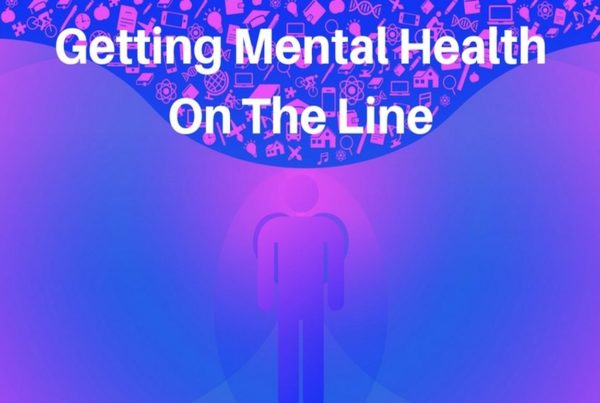What are Cognitive Distortions and How Can They Help Me?
What are cognitive distortions?
Cognitive distortions are a type of negative thinking pattern that we all experience from time to time. These patterns of thought can lead to anxiety, depression, and other mental health problems. But don’t worry, with the help of cognitive-behavioral therapy (CBT) and mindfulness, you can learn to recognize and challenge these distortions.
Understanding Cognitive Distortions
Cognitive distortions were first identified by Aaron Beck in the 1960s. Beck is a cognitive-behavioral therapist who believed that negative thoughts and beliefs were at the root of many psychological problems. He noticed that his patients often had a set of common negative thoughts that he called “automatic thoughts.” These thoughts were not necessarily based on reality but were distorted versions of the truth. For example, if someone fails an exam, they might think “I’m a failure” or “I’m stupid.” These thoughts are not based on the reality of the situation but are distorted versions of the truth.
Beck identified several types of cognitive distortions that we all experience.
These include:
- All-or-Nothing Thinking: This type of distortion involves seeing things as black or white with no shades of gray. For example, if you make a mistake at work, you might think that you are a complete failure.
- Overgeneralization: This distortion involves making sweeping statements based on limited evidence. For example, if you fail one test, you might think that you are stupid and will never pass any exams.
- Mental Filtering: This distortion involves focusing on the negative aspects of a situation and ignoring the positive. For example, if you receive a performance review with mostly positive feedback but one negative comment, you might focus only on the negative comment and ignore the positive feedback.
- Discounting the Positive: This distortion involves dismissing positive experiences or accomplishments as unimportant. For example, if you receive a compliment, you might dismiss it as insincere or unimportant.
- Jumping to Conclusions: This distortion involves making assumptions without any evidence to support them. For example, if your boss seems distant, you might assume that they don’t like you or that you’ve done something wrong.
- Catastrophizing: This distortion involves imagining the worst possible outcome of a situation. For example, if you have a headache, you might assume that you have a brain tumor.
Challenging Cognitive Distortions
Now that you have an understanding of the common types of cognitive distortions, let’s explore how you can challenge them. The first step in challenging cognitive distortions is to recognize when you are engaging in them. You can do this by paying attention to your thoughts and noticing when they become negative or distorted.
Once you have identified a cognitive distortion, the next step is to challenge it. One way to challenge a distortion is to ask yourself some questions such as:
- Is there evidence to support this thought?
- Is this thought helpful or realistic?
- What would I say to a friend who had this thought?
By asking these questions, you can begin to challenge the distortion and replace it with a more positive and realistic thought.
Another technique to challenge cognitive distortions is to practice mindfulness. Mindfulness involves paying attention to the present moment without judgment. When you practice mindfulness, you can observe your thoughts without getting caught up in them. This allows you to recognize when you are engaging in a cognitive distortion and to let go of it.
The Benefits of Challenging Cognitive Distortions
Challenging cognitive distortions can have several benefits for your mental health and well-being.
By challenging these negative thinking patterns, you can:
- Reduce anxiety and depression: Cognitive distortions can lead to feelings of anxiety and depression. By challenging these distortions, you can reduce the intensity and frequency of these negative emotions.
- Improve self-esteem: Cognitive distortions can be damaging to your self-esteem. By challenging these thoughts, you can replace them with more positive and realistic ones, which can help to improve your self-esteem.
- Improve relationships: Cognitive distortions can lead to negative assumptions about others, which can harm your relationships. By challenging these distortions, you can develop more positive and realistic views of others, which can improve your relationships.
- Improve problem-solving skills: Cognitive distortions can make it difficult to problem-solve effectively. By challenging these distortions, you can develop more realistic and effective problem-solving skills.
Cognitive distortions are a common type of negative thinking pattern that we all experience from time to time. By recognizing and challenging these distortions, you can improve your mental health and well-being. If you struggle with cognitive distortions and find it difficult to challenge them on your own, consider seeking the help of a qualified therapist who can provide you with the tools and techniques you need to overcome them. Remember, you have the power to change your thinking patterns and live a happier, more fulfilling life.
Book Your FREE 30 Minute Consultation With Release Hypnosis NOW!
You may also like to read:
How to Deal with Imposter Syndrome: Tips from a Hypnotherapist
The Mindfulness Toolkit
Release Hypnosis Celebrates 8 Years!
Unlock The Power Of Your Mind With a Hypnosis Audio Recording







